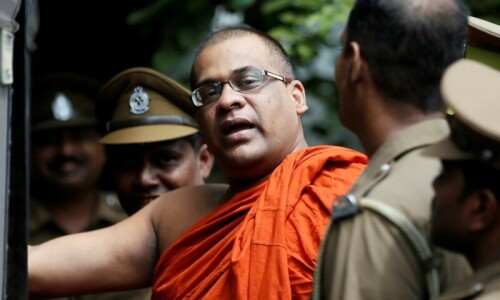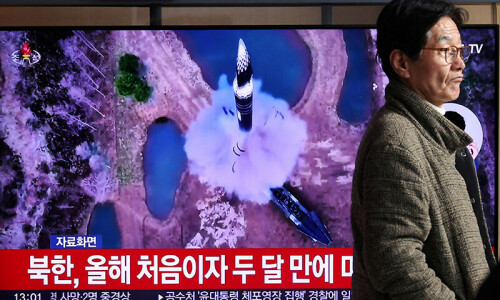LAHORE, Dec 4: Prime Minister’s Adviser on Finance Shaukat Tarin has said that the economy will suffer adversely because of the deteriorating security situation in the country and tensions on the borders.
“Pakistan is in a state of war in its tribal areas, tensions are high with India after the recent terror attacks in Mumbai and security conditions in Karachi and the rest of the country are worsening,” Mr Tarin told Dawn in an exclusive interview at his Islamabad office on Wednesday evening.
“(The) economy cannot be divorced from the security (situation). It’ll have adverse effects on the economy; you cannot expect Pakistan to grow in such conditions. The Frankenstein will have to be put back into the bottle,” he said.
However, Mr Tarin was confident foreign investors would rush to Pakistan after an improvement in macroeconomic fundamentals on the strength of the two-year economic stabilisation programme.
“I believe that foreign investment during the current fiscal year will reach the previous year’s level of $5 billion,” he said.
“We have received foreign investment of $1.1 billion during the first quarter of this year, which I think is slightly more than what we had attracted in the same period last year.”
The adviser was not apologetic about the agreement with the IMF and the impact of its stringent conditions on the economy. “We had taken all the tough decisions before we went to the Fund and had already begun implementing our stabilisation policies. We went to the IMF because our friends, apart from China, had encouraged us to do so before they stepped in to help us (overcome our cash flow problem).
“Moreover, (I think) if we were left to our devices (and avoided going to the IMF), the chances were that political compulsions could have forced us astray. The IMF will discipline us and prevent us from straying from the path of stabilisation,” he argued.
Mr Tarin conceded that macroeconomic stabilisation would slow down growth, cause unemployment and push poverty rate, but said: “That is the (only) choice”.
“With 25 per cent inflation you don’t want to inject liquidity into the economy. It will result in hyperinflation and negative growth for many years to come. So we have a trade-off: cool down the overheated economy for a year or two and bring down inflation.”
The adviser said that economic slowdown did not necessarily discourage fresh investments. “If the policy direction is correct, investors, both foreign and domestic, will not hesitate to invest their money in this country in spite of a slowing economy. Once inflation is curtailed and interest rates are revised down and fiscal gap narrowed down to around three per cent of the GDP in two years, more investors will bring in their money.”
He said that foreign investments were being made in telecom, banking and oil and gas sectors, as indicated by figures released for the first quarter of this fiscal. China Mobile alone is going to invest $800 million.















































Dear visitor, the comments section is undergoing an overhaul and will return soon.